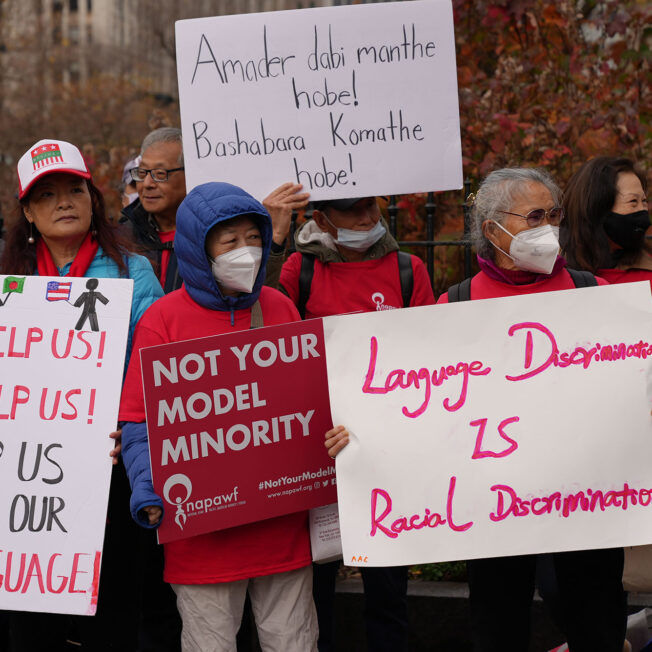Immigrant Rights
We believe all families deserve to live in safe and thriving communities with access to affordable and reliable health care regardless of their immigration status.

Immigrants are an integral part of Asian American and Pacific Islander families and communities.
As the fastest growing ethnic group in the country, Asian Americans make up 27% of all foreign-born immigrants in the US. We – our parents and grandparents, relatives, and extended family members, pillars in our homes and communities – have had to navigate a convoluted and outdated bureaucracy to arrive in the US after waiting years if not decades.
For immigrant families who have been in this country for generations, it was no different for our ancestors. Chinese American laborers built the transcontinental railroad under dangerous conditions yet did not receive equal pay or recognition. Many Asians found their way around racist exclusion laws even as industries came to rely on exploiting our status for cheap labor.
The United States has always depended on immigrant workers but never given us our due. Immigrants today, in particular undocumented people, often live in fear of deportation, lack access to health care services, and face multiple forms of violence and discrimination. More than 12 million Asian American and 220,000 Pacific Islander immigrants live in the US.
- Between 2010 and 2017, the Asian American immigrant population grew 23 percent, more than twice as fast as the entire immigrant population (11 percent) and more than four times as fast as the overall population (5 percent).
- Asians are predicted to be the largest immigrant group in the country by 2055.
- The Asian undocumented population has more than tripled within 15 years. Asian undocumented immigrants make up 16 percent of undocumented immigrants in the US.